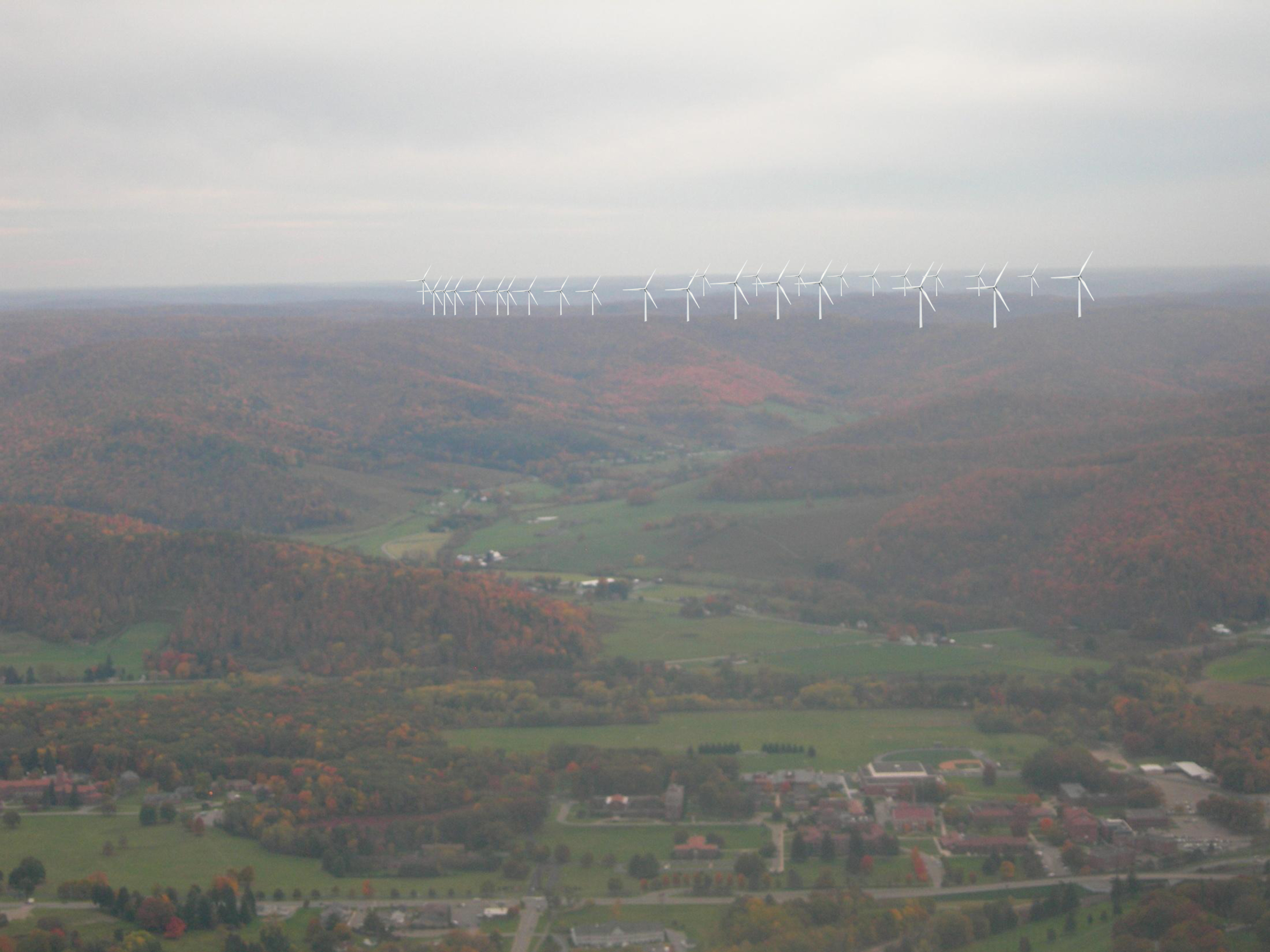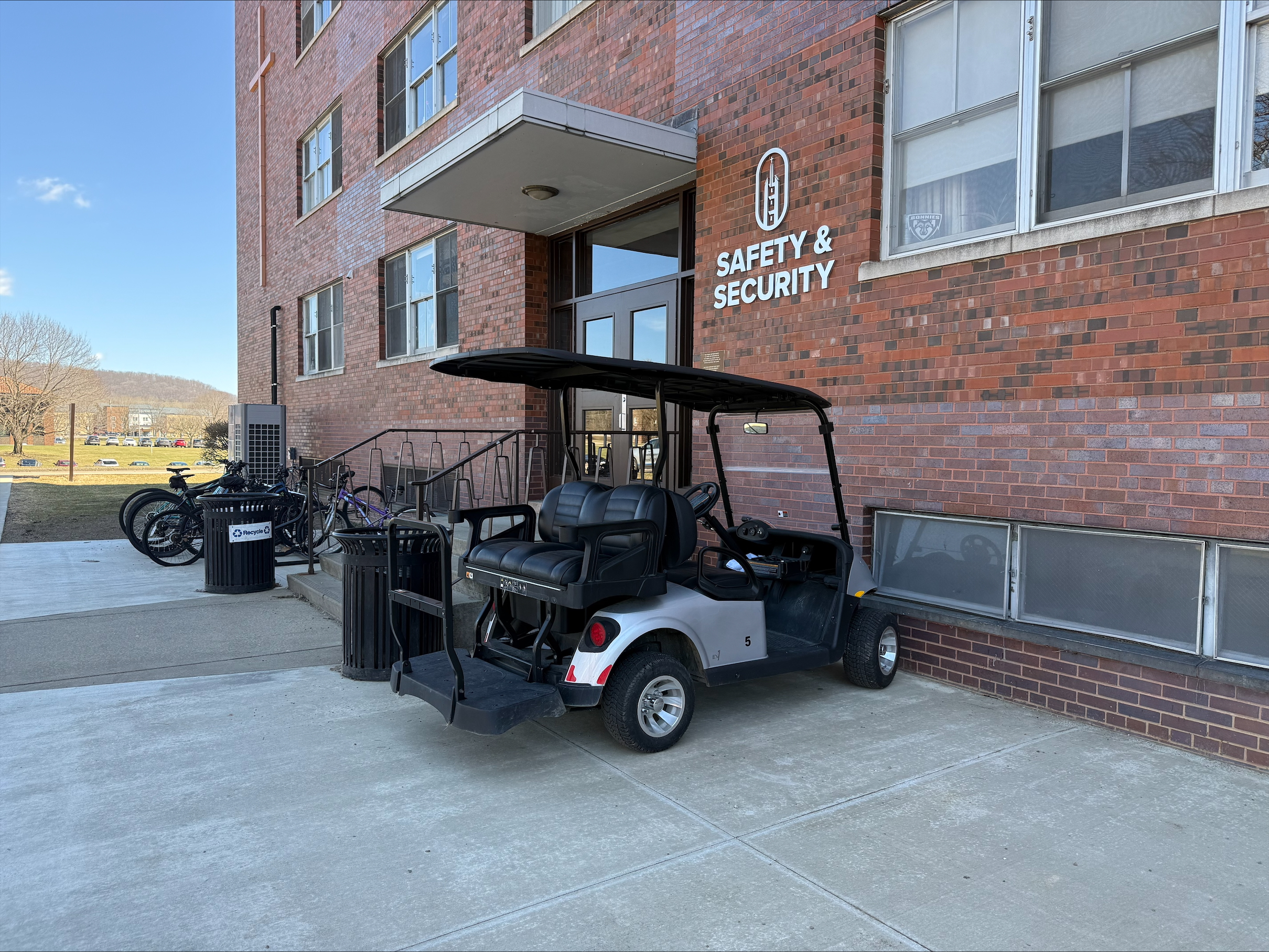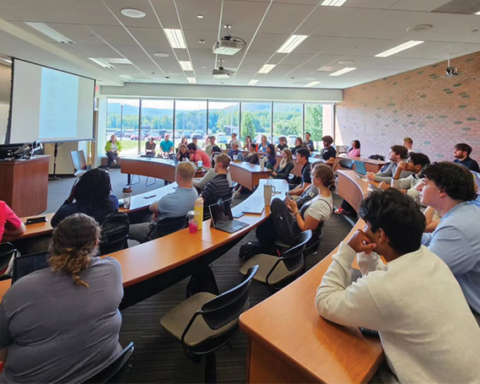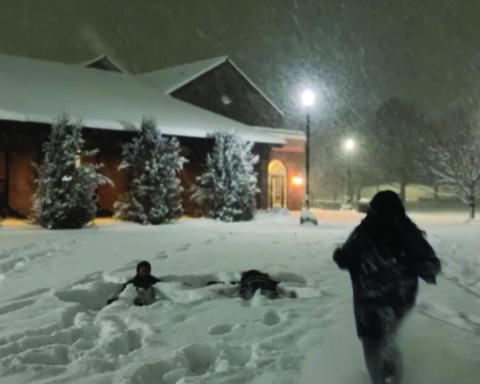By Nate West
News Editor
On Thursday, Feb. 28, Cattaraugus County Supreme Court Judge Michael Nenno dismissed EverPower Wind Holdings Inc.’s lawsuit against the Town of Allegany Planning Board in its entirety.
EverPower Wind Holdings Inc. proposed the Allegany Wind project in August 2011 to the Allegany Town Board. According to its website, construction was scheduled to begin in 2012, with the project operational by 2013, but construction has yet to begin.
EverPower Proposal
EverPower Wind Holdings, Inc., also known as EverPower, proposed to install 29 industrial wind turbines in Allegany, viewable over Merton’s heart from St. Bonaventure University, according to Kathy Boser, dean’s secretary and office manager for the Russell J. Jandoli School of Journalism and Mass Communication.
Boser is also a member of Concerned Citizens of Cattaraugus County (CCCC). CCCC is a group whose goal is to “keep the public armed with information not generally distributed by government officials or private corporations,” according to the group’s official website.
EverPower’s proposal was approved by the Allegany Planning Board on May 16, 2011 and by the Town of Allegany on July 11, 2011, both 3-2, according to a Feb. 29 press release.
Petitions
On Sept. 30, 2011, EverPower filed an Article 78 petition against the planning board, according to the Cattaraugus County clerks decision paper. An Article 78 petition is the procedure in New York for challenging government agency action.
Judge Nenno ultimately dismissed the petition, but CCCC appealed. CCCC then moved their appeal to the Supreme Court of the State of New York, Appellate Division, Fourth Department to have it dismissed, after realizing that EverPower was using CCCC’s appeal process to bide time, according to Boser.
“In its request, Everpower asserted that a previous CCCC lawsuit against the Town and company prevented it from advancing the project, the Planning Board decided to grant an extension of 90 days from the time the CCCC lawsuit concluded, or 12 months, whichever is longer,” Gary Abraham, legal advisor for CCCC, said in an email. “In response to that decision, CCCC filed a motion with the Fourth Department to withdraw, thereby terminating the lawsuit. Showing its true colors, Everpower filed a response arguing the lawsuit against it should not be allowed to die. The court granted CCCC’s motion. As a result the 90 days began to run and, as the recent decision by Cattaraugus County Justice Nenno states, the permit expired by Dec 5, 2012.”
When EverPower requested a 12-month extension in 2012, it was because they wanted a valid permit until the “fiscal cliff” deal was completed, Abraham explained. The fiscal cliff deal includes renewed tax credits for large renewable energy projects, a program wind developers rely on.
“It has lapsed in 2012 for companies like EverPower that were unable to commence construction on their projects by Dec. 31, 2011. Without it, the project would be viable,” he said.
Ted Gordon’s property
Allegany town law says that sound may not exceed more than three decibels above background at homes within 2,500 feet of any wind turbine. The only home within 2,500 feet of any EverPower Turbine belongs to Ted Gordon.
EverPower is required to submit a Draft Environmental Impact Statement (DEIS) and a Final Environmental Impact Statement (FEIS) under New York environmental law. They are used as tools in the decision-making process, weighing both the positive and negative impact on the environment for a proposed project.
In EverPower’s DEIS project map, Ted Gordon’s property appears, but doesn’t on the FEIS’. Both the DEIS and the FEIS can be found on the Allegany Wind Project page on everpower.com
Boser said that Gordon wasn’t aware that his property was in the range, until he began to read about it and started attending meetings.
“He reached out to us,” she said.
EverPower requests for more time
On April 3, 2012, EverPower then requested a 12-month extension of time to commence construction, claiming that the appeal by CCCC caused them to not be able to obtain the other approvals necessary to begin construction, according to the same press release.
The planning board granted EverPower a 90-day extension on its zoning permit on June 11, 2012, set to expire on Dec. 6. A second extension request filed on Sept. 28, was denied by the planning board.
EverPower’s change of plan/
Legal actions
“In August 2012, a month after Everpower assured the Planning Board no changes were planned for the project, Everpower requested approval for wind turbines with larger blades, whose span exceeds the length of a football field,” according to CCCC’s website.
In October 2012, the Planning Board decided that a Supplemental Environmental Impact Statement was required to address the potential impacts of larger blades.
“EverPower submitted a request to the Planning Board for approval of a larger turbine type,” Abraham said. “This new turbines would have a blade/rotor seep 37 percent larger than the approved turbine type. CCCC pointed out that noise is simply air turbulence, and a substantially larger rotor seep would result in much more turbulence in the air, and thus more noise, traveling farther distances.”
In December 2012, EverPower sued both the Allegany Planning Board and The Town Board of Allegany. The lawsuit against the Planning Board was filed on Nov. 14, 2012. The case was dismissed in its entirety on Feb. 28. In the decision paper filed by the County of Cattaraugus it reads “In each instance where issues have been raised (EverPower) has failed to demonstrate it is entitled to the relief request, either because of procedural and/or substantive failures. Thus, this court concludes that the petition lacks merit and must be dismissed.”






